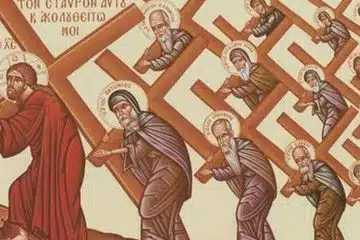The Catholic Moment: Eucharist and the Greatest Commandment
Wednesday, August 19, 2009
By Sister Carol Gaeke, O.P.
The greatest commandment is the Gospel: “Love the Lord your God and your neighbor as yourself.”
It is proclaimed on the feast of Pope St. Pius X who was the great promoter of early and frequent reception of the Eucharist. Prior to 1910 the ordinary faithful went to Communion so seldom that the church had to have a law that all receive Communion at least once a year.
Remember the concept of fulfilling your Easter duty? Pius, a rarity in that he had a lot of parish experience prior to becoming pope, was probably pained at seeing people not receiving Communion because of an exaggerated sense of their perceived unworthiness. His understanding of Jesus’ words, “take and eat,” did not come with the proviso, “take and eat if you match some sinless standard,” which could be rather arbitrarily decided.
Some of us remember confessing the “sin” of talking in church. Pius even went so far as to insist that young children should participate in the Eucharist, following the words of Jesus in last Sunday’s Gospel: “Unless you eat the flesh of the Son of Man and drink His blood, you do not have life within you.”
This poetic expression is not to be taken literally, but it does mean that all who wish to grow in God’s love through Jesus need the Eucharist to nurture that love. Even young children need it. In the Eastern Orthodox tradition infants receive Eucharist at baptism. I once participated in an Orthodox, liturgy and the first recipients of Eucharist were about 25 children from infancy through age 10.
Children need the Eucharist as much as the rest of us to grow in God’s love, and Pius supported this belief so strongly that he changed the custom of the church, thus changing a centuries-old tradition. For those who think the church has never changed or should never change, we don’t have to go back very far to see a change that profoundly altered the way we worship.
Ideas of how we view the Eucharist are varied, from the bread of life essential for spiritual nourishment to being seen as a reward for right thinking and behavior. The controversies abound in politics at election times with different views, with some bishops adopting a more judgmental view and others being open to the possibility of good conscience and the belief that when conversion is necessary that constant encounter with the bread of life makes it more possible.
Years ago, while training our parish’s first group of special ministers of Eucharist, a man asked if he should deny Communion to a man whom he knew was having an affair. My response was that we were not there as judge or jury, but as ministers. God is the judge, and going to Communion was a matter of conscience between him and God. Who knows what horrid confrontations could happen at the altar if all of us set ourselves up as judge on the spot. The possibility that “I might be wrong” would never enter some people’s consciousness.
The greatest commandments are love of God and neighbor, and Pius X saw the necessity of Eucharist so all would be able to do that. None of us want that right taken away arbitrarily. We all need to be nourished by God: children, most of us sinners. and the few saints among us.









